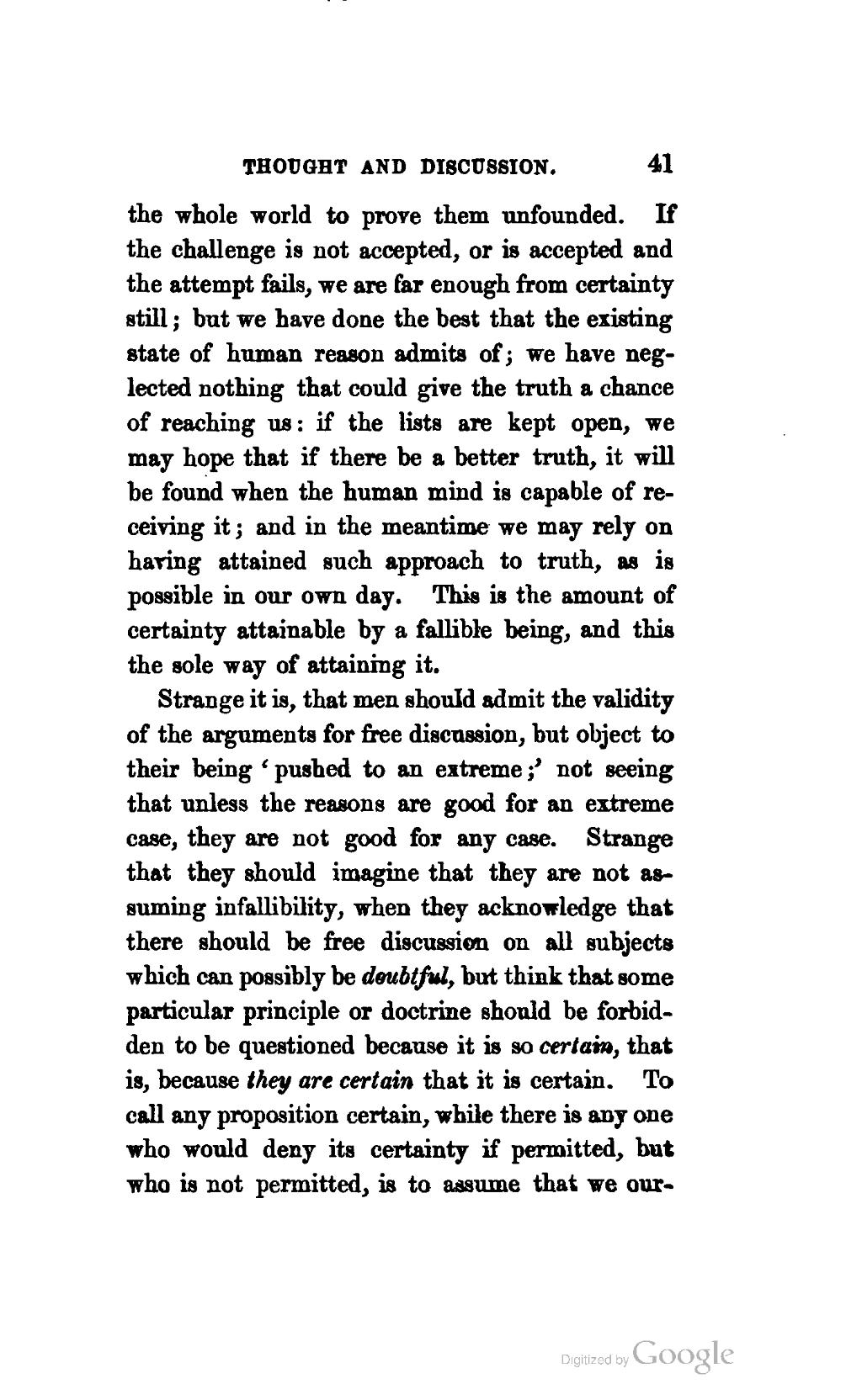the whole world to prove them unfounded. If the challenge is not accepted, or is accepted and the attempt fails, we are far enough from certainty still; but we have done the best that the existing state of human reason admits of; we have neglected nothing that could give the truth a chance of reaching us: if the lists are kept open, we may hope that if there be a better truth, it will be found when the human mind is capable of receiving it; and in the meantime we may rely on having attained such approach to truth, as is possible in our own day. This is the amount of certainty attainable by a fallible being, and this the sole way of attaining it.
Strange it is, that men should admit the validity of the arguments for free discussion, but object to their being ‘pushed to an extreme;’ not seeing that unless the reasons are good for an extreme case, they are not good for any case. Strange that they should imagine that they are not assuming infallibility, when they acknowledge that there should be free discussion on all subjects which can possibly be doubtful, but think that some particular principle or doctrine should be forbidden to be questioned because it is so certain, that is, because they are certain that it is certain. To call any proposition certain, while there is any one who would deny its certainty if permitted, but who is not permitted, is to assume that we our-
